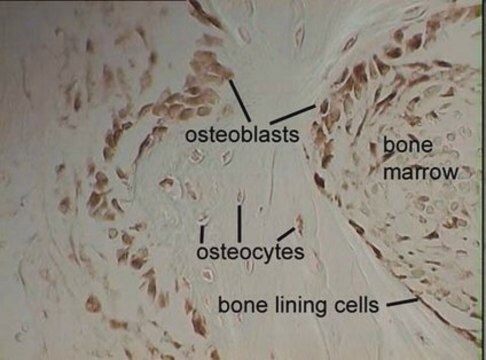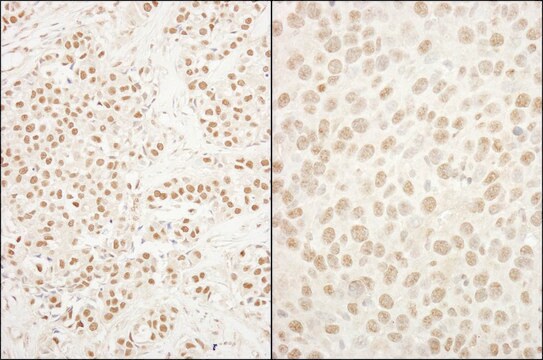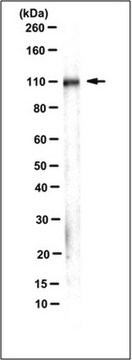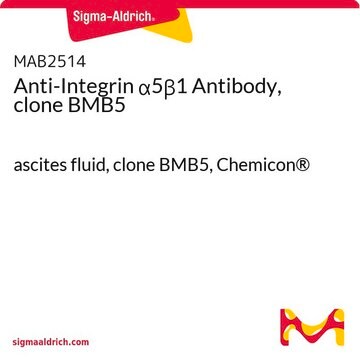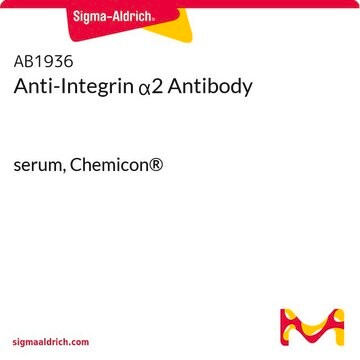MAB1998Z
Anti-Integrin α2β1 Antibody, clone BHA2.1, azide free
clone BHA2.1, Chemicon®, from mouse
Synonym(s):
VLA-2, MAB1998
About This Item
Recommended Products
biological source
mouse
Quality Level
antibody form
purified immunoglobulin
antibody product type
primary antibodies
clone
BHA2.1, monoclonal
species reactivity
human, pig
manufacturer/tradename
Chemicon®
technique(s)
flow cytometry: suitable
immunohistochemistry: suitable
immunoprecipitation (IP): suitable
isotype
IgG1κ
NCBI accession no.
UniProt accession no.
shipped in
wet ice
target post-translational modification
unmodified
Gene Information
human ... ITGA2(3673)
Related Categories
Specificity
Application
Cell Structure
Integrins
Immunoprecipitation: Immunoprecipitation of VLA-2 integrins from lysate of 10E6 cell equivalent requires 2-5 μg of BHA2.1
immunohistochemistry in frozen tissue sections: 5 μg/mL
Does not detect alpha2 integrin subunit by Western blot presumably due to conformational properties of the epitope involved. The epitope for BHA2.1 is dependent on the presence of the (I) domain of alpha2 integrin subunit and does not bind VLA-2 variant which lacks the I-domain.
Function Blocking: BHA2.1 inhibits VLA-2 mediated cell adhesion to collagen and laminin; complete inhibition can generally be achieved at a final concentration of 10 μg/mL.
Final working dilutions must be determined by end user.
Physical form
Storage and Stability
Analysis Note
Skin, CD4 & CD8 positive T cells
Other Notes
Legal Information
Disclaimer
Not finding the right product?
Try our Product Selector Tool.
Storage Class Code
12 - Non Combustible Liquids
WGK
WGK 2
Flash Point(F)
Not applicable
Flash Point(C)
Not applicable
Regulatory Listings
Regulatory Listings are mainly provided for chemical products. Only limited information can be provided here for non-chemical products. No entry means none of the components are listed. It is the user’s obligation to ensure the safe and legal use of the product.
JAN Code
MAB1998Z:
Certificates of Analysis (COA)
Search for Certificates of Analysis (COA) by entering the products Lot/Batch Number. Lot and Batch Numbers can be found on a product’s label following the words ‘Lot’ or ‘Batch’.
Already Own This Product?
Find documentation for the products that you have recently purchased in the Document Library.
Our team of scientists has experience in all areas of research including Life Science, Material Science, Chemical Synthesis, Chromatography, Analytical and many others.
Contact Technical Service